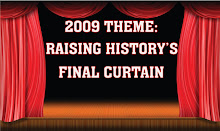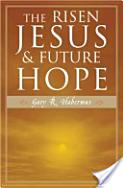In John 18:38, Pilate asks Jesus a simple yet extremely profound question, “what is truth?” One can almost hear a tone of sarcasm in Pilate’s voice as he utters forth this infamous question. It is almost as if Pilate questions whether or not truth exists. Throughout history many philosophers have offered various perspectives on the nature and knowability of truth. Many in our current postmodern culture question whether absolute truth exists and/or deny that it can be known.
Unfortunately many Christian young people have been spoiled by the culture’s current mantra which alleges that truth is relative to the individual and that absolute truth does not exist. In his book, The Last Christian Generation, author Josh McDowell cites the results from a recent survey in which 81% of teenagers said they believe “that all truth is relative to the individual and his/her circumstances.”(1) While most observers of modern culture would not find these statics overly surprising, the response offered by churched young people to same question is quite disturbing. McDowell reports that 70% of Christian young people believe that there is no absolute moral truth.(2) In short, our Christian young people, indeed some grace young people, are being adversely affected by the world system. Mr. McDowell’s commentary on the situation is both instructive and accurate, when he writes “they (Christian young people) have adopted the view that moral truth is not true for them until they choose to believe it. They believe that the act of believing makes things true. And then, once they believe, those things will be true for them only until they choose to believe something else. As soon as something more appealing comes along among they are likely to begin believing that—whether or not it’s Biblical.”(3)
For those of you who may be tempted to view McDowell’s thoughts as an overstatement, rest assured they are not. As a Christian educator in a public school, my heart has been broken numerous times upon listening to young people who call themselves Christians say things like, “Christianity is true because I believe it is” or “other religion can be true as long as they are sincerely believed.” Grace teens are not immune from this confusion and any thought to the contrary is near-sighted and ought to be guarded against. Just because young people are taught Pauline Mid-Acts dispensationalism does not ensure that they are equipped to withstand the unrelenting attack of the adversary upon the notion of absolute truth. In fact, keeping the second or third generation grace believer in the doctrine is a major problem that merits further discussion.
Americans are fickle when it comes to the issue of truth. On the one hand we demand the truth from our spouses, children, bosses, doctors, bankers, stock brokers, lawyers, and politicians. One need only look at the recent public outrage over the bonuses paid to AIG executives or the hatred directed at hedge fund scam artist Bernie Madoff for proof of mans demands to be told the truth. People expect to be told the truth when reading a reference book, pill bottle, road sign, food label, or watching a news story. In fact, Americans demand the truth in every facet of our lives that affects our money, relationships, safety, or health.(4)
Why is it then when it comes to religion and morality all of a sudden truth is relative? Why do people demand the truth in everything but morality and religion? Why does one say, “That’s true for you but not for me,” when discussing morality or religion, when they would never accept such nonsense when talking to their banker about their money market account or a doctor about their health? Most people’s rejection of moral or religious absolutes is volitional rather than intellectual. Consequently, many have swallowed self-defeating truth claims in their attempt to escape being held accountable to any moral standards or religious doctrines.
Simply stated, relativism is the belief that absolute truth does not exist. Relativists will often say things like “there is no such thing as truth.” Statements such as this are self-defeating; that is they fail to meet their own standards. If one says, “there is no such thing as absolute truth,” are they not making an absolute statement? In other words, the statement, “there is no such thing as absolute truth,” claims to be absolutely true. Comparatively speaking this is like writing, “This sentence is not in English.” Clearly such a statement must be false since it was written in English. The sooner grace believers learn how to recognize self-defeating statements, turn them against our opponents, and teach our young people to follow suit, the more powerful we will be as ambassadors for the message of Grace.
In their book I Don’t Have Enough Faith to be an Atheist, Norman L. Geisler and Frank Turek present the following seven truths about truth:
- Truth is discovered, not invented. It exists independent of anyone’s knowledge of it. (Gravity existed prior to Newton)
- Truth is transcultural; if something is true, it is true for all people, in all places, at all times. (2+2=4)
- Truth is unchanging even though our beliefs about truth change. (The earth is round
- Beliefs cannot change a fact, no matter how sincerely they are held.
- Truth is not affected by the attitude of the one professing it.
- All truths are absolute truths. Even truths that appear relative are really absolute
- Truth is that which corresponds to its referent.(5)
On the strength of these seven points, it is easy to see why Geisler and Turek concluded “that contrary beliefs are possible, but that contrary truths are not possible.” In short, we can believe everything is true but we cannot make everything true.(6)
In John 17:17, Jesus indirectly answers Pilate’s question about truth. Jesus states, “Sanctify them through thy truth: thy word is truth.” The bottom line here is that absolute truth does exist and the Bible claims to be the sole source of this truth. In other words, the word of God and the truth are synonymous with each other. Even II Timothy 2:15, a favorite verse of Mid-Acts dispensationalists, touches on this important issue. While the entire Bible is true, the portion of the truth which is applicable and in force today can only be discerned through rightly dividing the word of truth. In conclusion, consider the following statement--while most religions have some beliefs that are true, not all religions’ beliefs can be true because they teach opposites. So it is with the word of truth. The word of truth teaches opposites that need to be distinguished and divided from each other in order for the big picture to come into focus. A solid defense of absolute truth is crucial to Mid-Acts theology.
Footnotes:
1)Josh McDowell, The Last Christian Generation (Holiday, FL: Green Key Book, 2006), 45.
2)Ibid., 45.
3)Ibid., 42.
4)Norman L. Geisler and Frank Turek. I Don’t Have Enough Faith to be an Atheist. (Wheaton, IL: Crossway Books, 2004), 36.
5)Ibid., 37-38.
6)Ibid., 39.


























1 comment:
It is of great comfort to know there is truth, and to know where to find it.
A great post.
Post a Comment